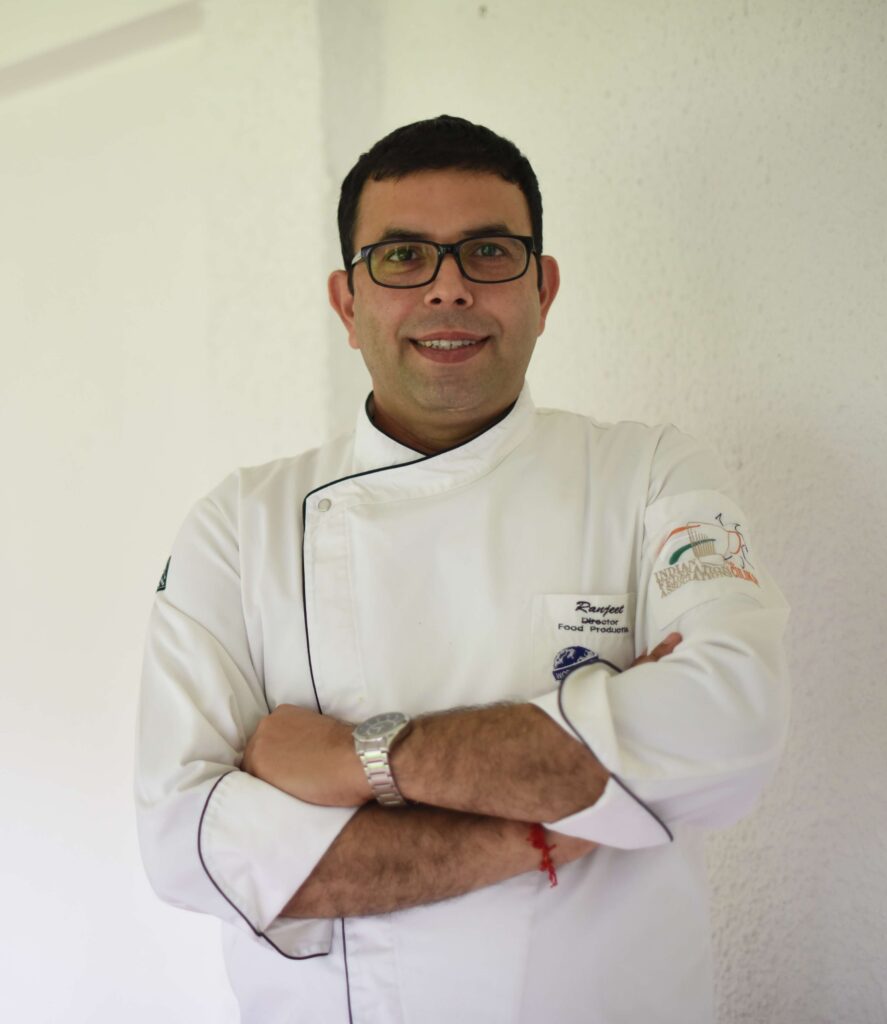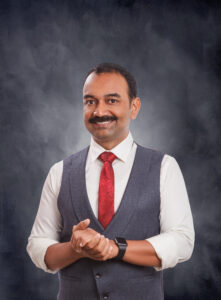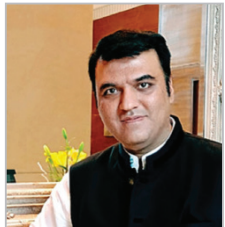Ranjeet Pandey, Director Food Production at Holiday Inn and Fisherman’s Wharf

“This industry is very dynamic and it’s all about change, it keeps you on your toes and every day is different.”
Mr. Ranjeet Pandey, Director Food Production, Holiday Inn and Fisherman’s Wharf left engineering college in 1991 to join Hotel Management because he wanted to break away from the mould and do something ‘challenging’ at a time when everyone was opting for ‘tried and tested’ professional degrees. Upon entering this industry, he realized that it was very different from what he had perceived, but the kitchen was something that interested him and he decided that that’s where he would like to work. “At that time I used to be a vegetarian, but today I eat everything”, he says “because you have to taste the food you serve up”.
In order to be a successful chef, one has to be passionate about the food industry. He says, “There aren’t any shortcuts. Your legacy cannot help you in this industry; but if you are passionate, it’s one of the best industries to be in. You get to travel, get to eat whatever you want; you get to experience completely different dynamics to what a regular job provides”. The only way to grow in this profession is through hard work. It’s not a regular 8 hour job, and the average working day is about 10-12 hours. After so many years in the industry, even after completing an 8 hour shift, he remains connected through his laptop and if something urgent comes up he needs to be present. “You have to be mentally clued in 24/7. I’m responsible for the overall deliverables, so it’s no longer about my physical presence, it’s about accountability”. He strives for perfection every day and even though there is nothing known as “absolute perfection”, he constantly aspires to reach that level. His advice to junior chefs is “do not take a single day for granted and have an eye for detail” since this is phase when the maximum learning takes place. He advises them against taking shortcuts because then they will never be able to achieve the result they are looking for. As one goes up the ladder, it’s very important for the chef in uniform to understand his responsibilities.
Founder Member and President of CFG. Culinary forum of Goa Through this they give back to society in various ways.
Among the many challenges, one of the biggest challenges in this industry is getting quality manpower. This is where the role of the management comes in. It’s important to create a good work atmosphere and provide the right tools which will not only help to retain an employee but also enable a chef to transform concepts into reality. Another challenge is the availability of good raw material. The internet, gives one access to recipes from across the world, but replicating the dishes sometimes becomes a challenge. A personal challenge faced by many is stagnancy. This industry is an open field with totally different dynamics where juniors can surpass their seniors. He says, “When you start feeling stagnant in this industry, it’s better to move out and explore the unknown, as the ‘unknown’ can only become ‘known’, once you venture into it.”
A trend change today is the preference that people have for standalone restaurants over 5 star chains. The reason for this is “A lot of stand-alone restaurants are run by Michelin jacket chefs who work with different parameters”. 5 star chains follow a process of storing frozen products, then thawing and refrigerating, where as in smaller restaurants fresh ingredients are hand-picked and consumed on the same day. “Frozen food can never compensate for fresh food.” But, at the end of the day what the customer is looking for is value for money be it at a 5 star or a stand-alone restaurant.
On the question of bringing about changes in the IHM course, he feels it needs to be done because the curriculum has not changed much since he passed out in 1994. Being a dynamic industry with constant change, industry interface and interaction needs to be introduced right from the beginning so that students get a sense of the customer and the business.












Leave a Comment